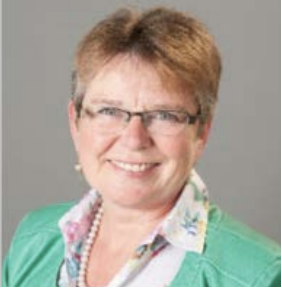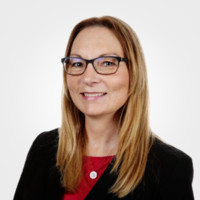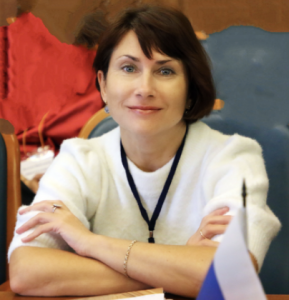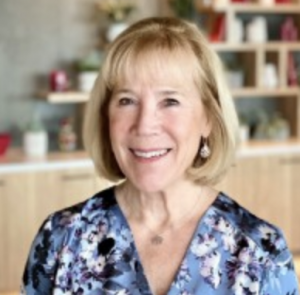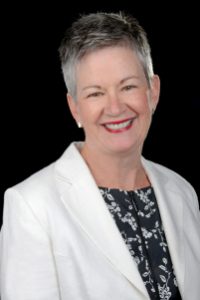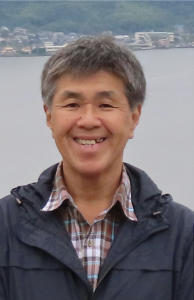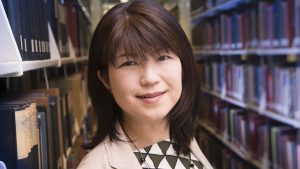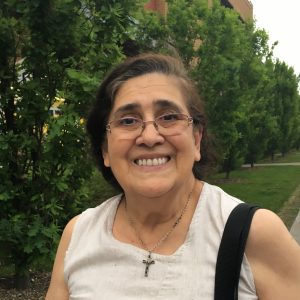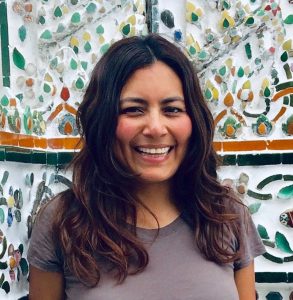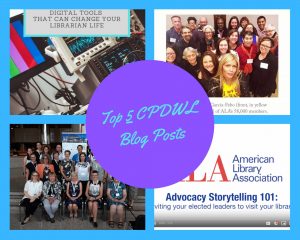Colleagues, we are excited to announce the our next episode (for season 2) of the CPDWL Podcast Project where we feature library and information professionals who support and participate in professional development work.
This episode’s guests are Ulrike Lang and Vera Keown
To see the episode, see here: https://anchor.fm/ifla-cpdwl/episodes/S2E3-Ulrike-Lang-and-Vera-Keown-on-Coaching-Programme-Part-I-eo3a93
Transcript is below.
Ulrike Lang – Until June 2020 Ulrike Lang was head of the Education and Training Department at the State and University Library Hamburg, Germany. Also responsible for Health management, conflict management, diversity management and addiction prevention. She is a member of the German library association BIB and gave several presentations at national and international conferences concerning CPD. Ulrike Lang already served eight years at the Continuing Professional Development Section (CPDWL) as co-chair, was four years member of the Education and Training Section of IFLA and now returned to CPDWL again as co-chair. She is a member of the coaching working group and served also as coach in the past years. At the 2019 Satellite conference in Zagreb she held the workshop „Challenging Presentation Needed? „
Vera Keown has been with the University of Manitoba in Winnipeg, Manitoba, Canada since 2010. First as Head of the Sciences and Technology Libraries and since 2014, as an Associate University Librarian. She previously held a number of library and business positions at the National Research Council of Canada. Vera has been a member of the IFLA Management & Marketing section since 2016. She considers it a great honour to be working on the IFLA Coaching Initiative with such talented and dedicated committee members. Vera is a certified leadership coach, Gallup Certified Strengths Coach, and a member of the International Coaching Federation. She offers one-on-one coaching to managers, leaders, and executives of all levels for leadership and performance development, and provides coach training to organizations.
Transcript:
Hi, this is Raymond Pun, Welcome to the IFLA CPDWL Podcast Project. In this space, we talk with library and information professionals who support and participate in professional development work.. Today’s guests are Ulrike Lang and Vera Keown.
Until June 2020 Ulrike Lang was head of the Education and Training Department at the State and University Library Hamburg, Germany. Also responsible for Health management, conflict management, diversity management and addiction prevention. She is a member of the German library association BIB and gave several presentations at national and international conferences concerning CPD. Ulrike Lang already served eight years at the Continuing Professional Development Section (CPDWL) as co-chair, was four years member of the Education and Training Section of IFLA and now returned to CPDWL again as co-chair. She is a member of the coaching working group and served also as coach in the past years. At the 2019 Satellite conference in Zagreb she held the workshop „Challenging Presentation Needed? „
Vera Keown has been with the University of Manitoba in Winnipeg, Manitoba, Canada since 2010. First as Head of the Sciences and Technology Libraries and since 2014, as an Associate University Librarian. She previously held a number of library and business positions at the National Research Council of Canada. Vera has been a member of the IFLA Management & Marketing section since 2016. She considers it a great honour to be working on the IFLA Coaching Initiative with such talented and dedicated committee members. Vera is a certified leadership coach, Gallup Certified Strengths Coach, and a member of the International Coaching Federation. She offers one-on-one coaching to managers, leaders, and executives of all levels for leadership and performance development, and provides coach training to organizations.
Welcome Ulrike and Vera!
Hi, Hi, thank you.
2:04
Our first question is really to look at the collaboration of coaching the idea of coaching. So we’re really excited to have you both coming in from CPD wl and mmm sections to talk about it. So how did this idea on coaching come about in cpW, well, and m&m sections to start things off, or Rico? Can you please talk about this?
2:27
Sure. The CPD wl section always try to present interactive programs and sessions at the word Library and Information conferences. And we realized that a lot of colleagues have the need to communicate about the tasks and problems with colleagues from abroad, they might talk much more open than with the colleagues in their own institution. Because in some business cultures worldwide, it’s not appropriate to name your lack of knowledge or competency. Also on previous satellite conferences of CPD, wl career and professional development coaching has already been part of the program of beige in a smaller size. And pushing usually is cost and time intensive. So we thought about offering a low threshold supply, which was also an experimental balloon.
3:18
So let me follow up with that. Who is the coaching program for Oh, Rica.
3:23
Actually, it’s for everybody who has a problem in daily work with her or his team, with the leadership, the organization of the customers, or the own role in the institution. There are lots of topics which has been raised during our years of coaching. And it’s not only problems, but it’s maybe just to will to change anything.
3:45
That’s very interesting. Thanks for giving some context here. And I know that at CB wl we working with the m & m section, we have started hosting these online asynchronous training and video support for the area of coaching. Vera. Can you tell us a bit about the training videos and why is it important for potential coaches to complete the ifla coaching training webinars?
4:13
Yes, so we recorded five training videos for the CPDWL website. And they’re presented in English however, through the work of numerous volunteers, we were able to post copies of the slides in six of the seven languages. But you know this, it was a huge undertaking to do that. But we really felt it was important that if the coaches could review the material in a language that they were most comfortable with. Coaching is about developing a good relationship and building trust for the coachee and it’s vital to the success of any coaching session. That can be more challenging when you’re coaching in a language that is maybe not your your first language. conversations that happen between coaches and coaches are usually very personal. And it’s very important to be able to convey and capture the essence of what’s being communicated. So I am really happy that we were able to get the translations of the materials and that the coaches feel that they were better prepared. They’re important to watch, because in my experience, there is a lot of confusion between, you know, what is mentoring, and what is coaching, both for the coach and the coachee. For the coaches, they often tend to be very accomplished managers and mentors already in their careers, they’ve had long careers doing that. And they’re kind of used to that problem solving environments where the, you know, the coachee or their employee comes to them with some problem and, and as the, you know, more senior person, they tell them what they need to do. So, so, the videos go through a lot of that, to try and clear up some of the confusion between what is managing what is mentoring, and what is coaching, and how they’re different when to use them. And then it also gets into how to do it, which involves a lot of open ended questioning. And the one of the things that we talked about, I believe, on the live webinar that we did with how to handle some of common coaching challenges that come up. So anybody who’s interested in being a coach could watch those videos, they’re only about a half hour each, and they can get a real mini course, in how to how to coach.
6:50
Thanks for setting that up. And so that’s very helpful to see the resources that you have given to, to the members of IFLA. Right, and learning what types of differentiations of the types of positions. Now, Rica, can you talk about the the coaching program in the world Library Information Congress in 2018, and 2019? And what was that like? And I know you mentioned a little bit about it, but can you tell us more about that?
7:22
Sure. And actually, we had no idea if participants of the wl IC in 2018 would take the time or felt the need of being coached. So we ordered a ballroom style room in Kuala Lumpur. We looked for coaches in our own section, but also every member of the Standing Committee of CPDWL with contacts to experienced colleagues tried to motivate them to participate too. We started long before the Congress to advertise for the session. And we also provide some colleagues as hosts to guide the coaches at the session itself. As we didn’t know how many would participate, we seriously worried if we would be just the coaches or too many interested coaches, we were pretty prepared to connect one coach with one coachee, but also to organize some kind of group coaching, if there would have been too many people interested. The organizing group prepared a list with coaching areas where the coaches could mark the topics she or he felt safe to coach with like management skills, health management, lifelong learning, marketing libraries, sectors, like academic or public libraries, career planning, change, men, management, etc. At the doors, the hosts would guide the coaches to an available coach who covered the asked topics. That was the theory. In practice, there were too many interested colleagues. So almost every coach had three to six people at her or his table. And it was the individual choice how the coaches deal with them. Of course, there was not very much privacy at the tables. So mostly they had some kind of group coaching. Our every coach he was waiting to get in the row. After the W li c 2018. We decided to offer more theoretical input about coaching, because some of the coaches came with the expectation to get the clue that means to find a mentor. And in some cases, it was very even for the coaches very difficult to go the way of coaching instead of just giving advice in 2019. In essence, we were prepared better, didn’t divide the coaches in topics offered only one by one coaching and also offered the coaching in all official languages. So the only Way to split the coaches was what was the language they would like to be coached in. We had more hosts who watched which coach could welcome the next coachee. And we started to collaborate with the m&m section, where a lot of well experienced colleagues are on board.
10:20
Riga, thanks for that context. Actually, I do recall for myself being a coach for both 2018 and 2019. And it was quite quite different. So I’ve seen the improvement 2018, it felt like it was a good pilot, where we had a group of participants in one table, and everyone was trying to almost group coach each other in such a certain extent. And so 2019 was more consistent in terms of one on one support. And now with the pandemic, we know that things have flipped online, and there was no 2020 Congress, unfortunately, so we couldn’t get together and do another coaching session. However, I do know that some of our listeners and and might know this, that we flipped online. And so what was what was it like pivoting to online coaching format in 2020? Were there any logistical challenges that you’d like to share? Vera?
11:19
Well, yeah, there were some things online. But coaching is actually fairly easy to do either by phone or video conferencing. In fact, that’s the way I’ve been doing most of my coaching is through virtual coaching with the clients that I have. It’s very convenient, both for the coach and the coachee. And it’s also very low cost, especially when we’re using online free online services. So there’s no long distance charges or travel time that’s required for on either parties. Um, it also needs to coachees are not limited to working with those coaches that are within their local area. And this is especially important for anyone living outside of a major city. One of the main challenges we had was implementing an online booking system for the coaching appointments. Because we had quite a number of coaches and coaches, and we didn’t have a paid subscription to an online booking system. And we also wanted to maintain the confidentiality and the privacy of everyone that was involved. But we did actually work that all out, and I think it worked quite well. I think the other challenge with the online coaching versus having the coaching with at the conference, or at the Congress was, you know, coachees not showing up for appointments. I think that happened a few times, because these tend to be booked in advance. And although they are put into people’s calendars, you know, it doesn’t always match up with what’s going on in people’s lives at that time. So we were at the Congress, everybody’s you know, more focused on on the Congress and, you know, are able to leave sort of their day to day lives a little bit behind they are there. One of the biggest challenges though, with online and phone coaching, is the ability to read people’s body language, or to see their facial expressions. So with video coaching, you know, it’s actually not that bad because we, because of this year, we’re actually getting quite good at it. I think that doing this. But when you’re only coaching by audio, it can be a little bit more, more difficult. But a lot of the communication happens outside of the words people actually speak. So as a coach, it’s important to notice changes in body language and facial expression. If you only have audio to go on, then you know, you’d have to really pay attention to the tone of voice that people are using the rate of their speech. These are all good cues as to what the coachee is feeling when they’re talking about an issue.
14:11
Those are really great points about body language, facial expressions, the tone, like you had mentioned for in person, right? And then now it’s it’s, it’s a little different online where you could still see some body language, but it’s difficult, right? If they are if the videos are off, obviously you can’t see it, but the tone really picking that up. And so about the feedback from participants, what about that and you know, I recall hearing and reading about rolana Ron has experience a participant from the Philippines speaking about her experience with Coach Rajan a CPD wl member from Singapore remotely and highly enjoyed it. And I wonder if you could talk more about the feedback where we go.
14:53
Yeah, you’re right, Ray. I think feedback is something we can really improve because it was different This year, we send out a questionnaire after the coaching sessions. And the return write rate was very low. The years before, it was much easier when the hosts at the exit doors of the room where the session took place, just asked the leaving coaches. But I know that some of the coaches got feedback from the coaches later. And I also know from one coach who is now friend with a coach he on Facebook, so it could be Yeah, connection for a long time.
15:37
Yeah, those are great points for consideration how those connections right are so important, especially right now. And so we are we’re heading to our final question here on this topic, what’s next for the coaching? Sure,
15:57
we’ll certainly continue with the online coaching as long as we cannot meet in person. And the W li c will be virtual in 2021. The coaching working group will meet soon via zoom to discuss the next steps.
16:14
But those are great next plans, Vera.
16:18
And well, For my part, I have lots of ideas that I will be bringing to our next meeting of the working group. I think we talked a little bit about these, actually this year as well. But I’d like to do a video training session for coachees to help them prepare for the coaching session. As I Ulrike had mentioned that, you know, there’s still some misunderstanding from the coachees as to what coaching is, and what their role is in it. And, you know, they may be still looking for advice. And for the coach to, you know, tell them what they need to do. But for coaching, it’s the coachee is the one that is expected to do all of the hard work of coaching. And it’s about discovering the capabilities that they already have within themselves to reach their goals and to find solutions to their challenges. The other thing I’d like to try and develop is a group coaching session, in order to help the the IFLA coaching program meet the demand that we’re getting. So with one on one coaching, the coachee determines the topic for the session, and they work with the coach to develop a solution that’s tailored to their situation and their their personality. With group coaching, it’s still focused on the individual and developing their own strategy, but it’s centered around a common theme or topic. And the coach leads the coachees participating in the group through exercises that get them to work through challenges, or define their goals and strategies. So each coachee does their own work. But the questions are, are, and they’re a little less less spontaneous than they would be in a one on one session. But it’s also a way to reach more coachees and on a common topic that might be familiar and important to some people often around career. You know, how do I get my next job, those types of things, points that people will often
18:30
have in common.
18:32
Well, those are really great projects and plans. Bera thank you for sharing that. And it’s so helpful to hear what projects are in store right, even though we’re all working remotely to a certain extent, wherever we’re located. So these are still exciting projects and plans that Ulrike shared. With that I want to thank our guests today or Riga and Vera, thank you so much for speaking with us today on coaching.
18:59
Thank you, it was really a pleasure. And for any questions from the listeners. Of course, we are here on the CPD wl website and I think on M and M to, to answer
19:13
Thank you very much. I really appreciate you putting this together. And it’s been it’s been great having an opportunity to talk about coaching.
19:22
Great, thank you all for listening.
